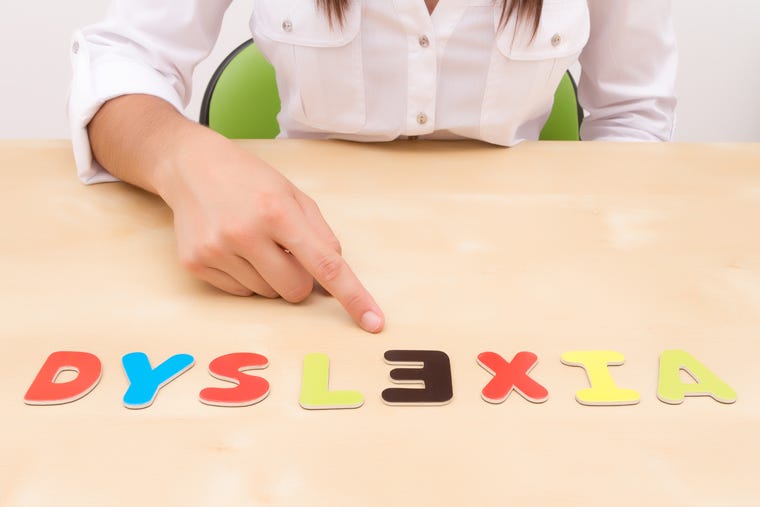

What is Dyslexia?
Dyslexia isn’t something that affects intelligence. In fact, it’s a language-based learning difficulty that predominately affects reading, writing and spelling. It’s estimated that 1 in 10 of us have dyslexia of varying degrees, and some of us go through our whole lives without ever knowing!
So what’s the science behind this pretty common difficulty? Dyslexia alters the way that the brain processes written material and is typically characterized by difficulties in word recognition and spelling. Dyslexia varies massively from person to person with some affected so slightly they may never be diagnosed at all, while others are so severely affected that their education can be challenging.
People with Dyslexia often have heightened talents and a special gift for being;
Amazing at solving puzzles
Excellent at comprehending the stories read to them
Always seeing the "big picture" perspective
Having
Dyslexia isn’t something that affects intelligence. In fact, it’s a language-based learning difficulty that predominately affects reading, writing and spelling. It’s estimated that 1 in 10 of us have dyslexia of varying degrees, and some of us go through our whole lives without ever knowing!
So what’s the science behind this pretty common difficulty? Dyslexia alters the way that the brain processes written material and is typically characterized by difficulties in word recognition and spelling. Dyslexia varies massively from person to person with some affected so slightly they may never be diagnosed at all, while others are so severely affected that their education can be challenging.
People with Dyslexia often have heightened talents and a special gift for being;
Amazing at solving puzzles
Excellent at comprehending the stories read to them
Always seeing the "big picture" perspective
Having a large spoken vocabulary for their age
Curious, creative, and more intuitive than the average Joe
Dyslexics’ special mode of thought easily produces the gift of mastery… so basically the unsung genius!
Dyslexia Friendly Stationery


With plenty of famous faces (old and new) known to have Dyslexia such as Winston Churchill, Albert Einstein, John Lennon and Tom Cruise it’s easy to see how Dyslexia doesn’t hold you back. But if Dyslexia is appearing a difficult hurdle to cross for you or your loved one we have a few products which may help to make learning easier.


Using coloured paper or overlays help people to read for longer periods of time by relaxing the eyes, neck and shoulders as they read. Colours can help printed or written text pop off the papermaking words appear clearer, improving comprehension dramatically!


Encouraging a comfortable grip on the pen or pencil that a child is using is a really simple way of making writing that bit more enjoyable and give the user much better control when forming letters and words.


Ergo-soft stationery or stationery designed specifically to reduce stress on hands and wrists whilst writing, is perfect for anyone wanting to improve writing skills. Ergonomic stationery will allow children to find a comfortable position and reduce stress and damage to the posture of the hand, making handwriting a bit easier just with the pen or pencil used.


Designed especially with Dyslexia in mind each page of this pad can aid reading and writing. The bright white paper can be especially difficult for Dyslexia sufferers to write on, this Pukka Pad range offers a choice of different coloured inner papers so you can find the one that works best for you.











